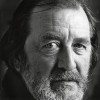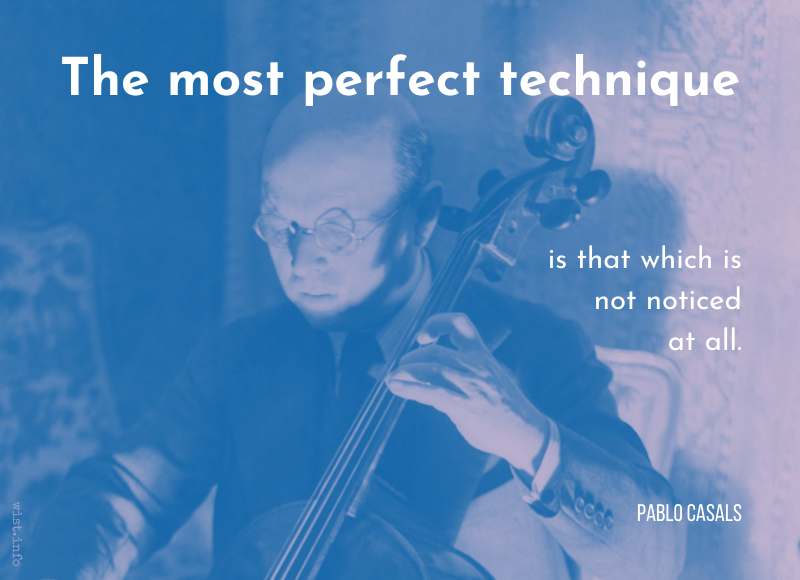The fourth and most important difference between a novel and a film (or play) is that when the reader tires of a novel he can mark his place, put it down, and return to it later. But the attention of an audience must be held continuously. There must be an unbroken progression. It may be progression of the emotion or the thought or the action, but emotion and thought must issue in action or threaten to. In a dramatic medium such as film the characters cannot pause to propound ideas and emotions not directly relevant to their own dramatic situation. In the middle of War and Peace Tolstoy can plant a substantial essay on the nature of military power. In a film script one unnecessary page, one page not furthering the progression, will lose the attention of the audience for the next ten.
Robert Bolt (1924-1995) English dramatist
Doctor Zhivago: The Screenplay, “Author’s Note” (1965)
(Source)
Quotations about:
medium
Note not all quotations have been tagged, so Search may find additional quotes on this topic.
Neither all bad nor all good. A certain sage reduced the whole of wisdom to the golden mean. Carry right too far and it becomes wrong. The orange squeezed completely dry gives only bitterness. Even in enjoyment you shouldn’t go to extremes. The intellect itself will go dry if pressed too hard, and if you milk a cow like a tyrant you will draw only blood.
[Nunca apurar, ni el mal, ni el bien. A la moderación en todo redujo la sabiduría toda un sabio. El sumo derecho se hace tuerto, y la naranja que mucho se estruja llega a dar lo amargo. Aun en la fruición nunca se ha de llegar a los extremos. El mismo ingenio se agota si se apura, y sacará sangre por leche el que esquilmare a lo tirano.]
Baltasar Gracián y Morales (1601-1658) Spanish Jesuit priest, writer, philosopher
The Art of Worldly Wisdom [Oráculo Manual y Arte de Prudencia], § 82 (1647) [tr. Maurer (1992)]
(Source)
(Source (Spanish)). Alternate translations:Not to pry too much neither into good nor evil. A wise man comprehended all his wisedom in this Precept, ne quid nimis, nothing too much. Too strict a justice degenerates into injustice. The Orange that is too much squeezed, yields a bitter juice. Nay in enjoyment, we ought never to go to either of the two extremes. Wit itself is exhausted by too much straining. By endeavouring to draw down too much milk, bloud is often fetched.
[Flesher ed. (1685)]Drain Nothing to the Dregs, neither Good nor Ill. A sage once reduced all virtue to the golden mean. Push right to the extreme and it becomes wrong: press all the juice from an orange and it becomes bitter. Even in enjoyment never go to extremes. Thought too subtle is dull. If you milk a cow too much you draw blood, not milk.
[tr. Jacobs (1892)]Drink nothing to the dregs, either of the bad, or of the good, for to moderation in everything has one sage reduced all wisdom. Too great justice become injustice, and the orange, squeezed too hard, turns bitter; even in enjoyment, do not go too far. The spirit itself grows weary if worked too long, and he draws blood instead of milk, who milks too hard.
[tr. Fischer (1937)]
I have always regarded technique as a means, not an end in itself. One must, of course, master techniques; at the same time, one must not become enslaved by it — one must understand that the purpose of technique is to transmit the inner meaning, the message, of the music. The most perfect technique is that which is not noticed at all.
Pablo Casals (1876-1973) Spanish cellist, conductor, composer
Joys and Sorrows, ch. 5 (1970) [with Albert E. Kahn]
(Source)
Talking about music is like dancing about architecture.
Martin Mull (b. 1943) American actor, comedian
(Attributed)
Many people have put many hours into determining the origin of this quotation, but the best evidence at present points to Mull, in or before early 1979. See:
I think any argument that states that comics (or radio or film or a musical or the novel or insert your favourite medium here…) by its nature trivialises its subject matter is foolish, shortsighted, dim, lazy and wrong. You can say, “This is a bad comic.” You can’t say, “This is bad because it’s a comic.”
Neil Gaiman (b. 1960) British author, screenwriter, fabulist
Blog entry (2008-02-21), “Coraline Trailer”
(Source)






